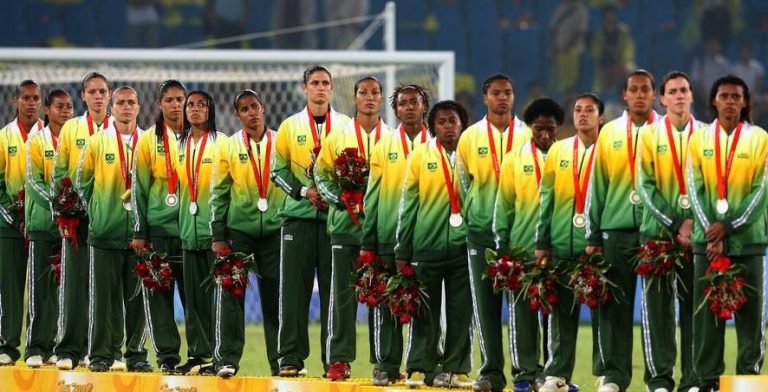One of the powerhouses in women’s football, a two-time silver medalist in the Olympics (Athens 2004 and Beijing 2008), runner-up in the 2007 World Cup, and third in the 1999 World Cup, the Brazilian National Team begins a new chapter in search of the elusive Olympic gold this Thursday (25). The match against Nigeria at 7 PM in Bordeaux Stadium (2 PM Brasília time) will be the team’s first game in Group C of the competition. They will then face Japan (28) and Spain (31).
The top two teams from each group and the two best third-placed teams will qualify for the quarter-finals. There are 12 teams in the competition, several of which have a notable history in women’s football, such as the United States, Germany, Canada, and two direct opponents of Brazil in the group stage: Japan and Spain – the current world champions.
READ MORE
++ The best Brazilian players who have played for FC Barcelona
++ The best Brazilian players who have played for Real Madrid
++ The best brazilian players to play for Chelsea FC
Having been with the National Team for ten months, coach Arthur Elias remains optimistic due to the intense work done with the team, which began even before the athletes’ presentation in Teresópolis (RJ) earlier this month. Under the coordination of Cris Gambaré, a reference in women’s football management in South America, the team has formed a coaching staff accustomed to significant victories and achievements with Brazilian clubs.
For Arthur, Brazil is among the “seven or eight” candidates for the podium. He reiterated that he will be at Bordeaux Stadium this Thursday “with high expectations,” aware that he has a group of highly skilled athletes.
“It will be an Olympics marked by balance, with great teams capable of advancing to the final rounds. In the case of the Brazilian National Team, we have worked a lot on the idea of taking it step by step, game by game. We have studied our opponents in detail and are prepared.”
In a team that blends youth with experience, Marta is the most recognized name for obvious reasons. A six-time world player of the year, she will compete in her sixth Olympics. She won silver in 2004 and 2008 and has scored in the last five editions of the Games.
The forward was called up due to her excellent season with Orlando Pride and her strong recent performances in friendlies with the National Team, where she showed great physical and technical form.
Preparation
Since the training sessions in Teresópolis, Arthur has been implementing different game plans for each of Brazil’s commitments in the group stage. The time between matches is short, just three days. He has tested various formations in defense, midfield, and attack. He does not like to work with the concept of fixed starters.
The team’s lineup will only be announced moments before the match and will remain this way until Brazil’s last game in the Olympics.
History
Brazil has had two notable campaigns in Olympic women’s football, specifically in 2004 and 2008, when they won silver. After that, in 2012, 2016, and 2021, they advanced well from the group stage but struggled offensively in the knockout rounds. This is directly related to the fact that the coach called up seven forwards for the Games.
Both in Teresópolis and in Bordeaux, the National Team has trained various attacking options, reinforcing the coach’s idea that he leads a group where anyone can be called up at any moment.



